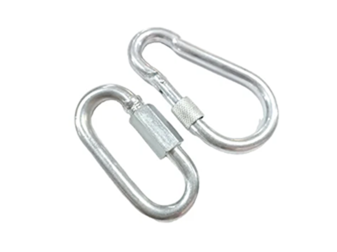авг. . 15, 2024 05:46 Back to list
A Comprehensive Guide to Different Types of Bolts and Their Applications in Various Industries
Understanding All Types of Bolts A Comprehensive Guide
Bolts are essential fasteners used in various applications, ranging from construction and manufacturing to automotive and electronics. They come in numerous shapes, sizes, and materials, each designed for specific purposes. This article aims to explore the different types of bolts available, their characteristics, and their typical uses.
What is a Bolt?
A bolt is a type of fastener that is typically made of metal and features a cylindrical shaft with an external thread. Bolts are often used together with a nut to secure objects or materials together. The main difference between bolts and screws is that bolts are usually used in a pre-drilled hole, while screws can be directly driven into the material.
Common Types of Bolts
1. Hex Bolts Hex bolts are perhaps the most commonly used type. They feature a six-sided head and are often used in conjunction with a nut. Their strength and versatility make them ideal for a wide range of applications, from machinery to construction.
2. Carriage Bolts Recognizable by their rounded heads and square necks, carriage bolts are typically used in wood applications. The square neck prevents the bolt from turning when the nut is tightened, making them ideal for securing lumber and other materials.
3. Eye Bolts These bolts have a loop or “eye” at one end, allowing them to be used for lifting and rigging applications. Eye bolts come in both plain and shoulder designs, with the latter providing more stability during lifting operations.
4. Lag Bolts A type of heavy-duty fastener, lag bolts (or lag screws) are used in woodworking and construction. They have a coarse thread and are designed to be driven into wood without the need for a nut, making them ideal for securing heavy timbers.
all type bolt

5. Anchor Bolts Used to attach structures to concrete foundations, anchor bolts are essential in construction. They come in different designs, including L-shaped and straight types, and are often embedded in the concrete during the curing process.
6. Socket Head Cap Screws Featuring a cylindrical head with an internal hex drive, socket head cap screws provide a higher torque capacity than traditional bolts. They are commonly used in machinery where space is limited.
7. Set Screws These are short bolts that are used to secure an object within or against another object, often preventing any relative motion between them. Set screws typically have no head and are turned with a wrench or screwdriver.
Materials and Coatings
Bolts are available in various materials, including steel, stainless steel, brass, and plastic. The choice of material often depends on the application, with stainless steel being favored for its corrosion resistance. Additionally, bolts may come with coatings, such as zinc plating or black oxide, which provide added protection against rust and wear.
Selecting the Right Bolt
Choosing the right type of bolt for a specific application is crucial. Factors to consider include the load-bearing requirements, environmental conditions, and compatibility with other fasteners. Additionally, understanding the correct size, thread pitch, and strength grade ensures the safety and reliability of the fastening system.
Conclusion
In summary, bolts are vital components in numerous applications, each type designed for specific functions and environments. Understanding the differences among various types of bolts, along with their materials and uses, can significantly enhance the efficiency and safety of any project. Whether you are a DIY enthusiast or a professional contractor, choosing the right bolt is key to securing structural integrity in any endeavor.


